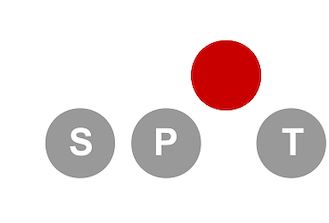Finally, with some delay, the book “Black Box Optimization, Machine Learning, and No-Free Lunch Theorems” is available. The book was edited by Panos M. Pardalos, Varvara Rasskazova, and Michael N. Vrahatis.
The introduction reads as follows:
This edited volume illustrates the connections between machine learning techniques, black box optimization, and no-free lunch theorems. Each of the thirteen contributions focuses on the commonality and interdisciplinary concepts as well as the fundamentals needed to fully comprehend the impact of individual applications and problems. Current theoretical, algorithmic, and practical methods used are provided to stimulate a new effort towards innovative and efficient solutions. The book is intended for beginners who wish to achieve a broad overview of optimization methods and also for more experienced researchers as well as researchers in mathematics, optimization, operations research, quantitative logistics, data analysis, and statistics, who will benefit from access to a quick reference to key topics and methods. The coverage ranges from mathematically rigorous methods to heuristic and evolutionary approaches in an attempt to equip the reader with different viewpoints of the same problem.
https://link.springer.com/book/10.1007/978-3-030-66515-9#about

The book has 13 chapters and contains contributions from leading experts in this field. The chapter “Tuning Algorithms for Stochastic Black-Box Optimization: State of the Art and Future Perspectives” was written by Thomas Bartz-Beielstein, Frederik Rehbach and Margarita Rebolledo. Here is a complete table of contents:
- Learning Enabled Constrained Black-Box OptimizationF. Archetti, A. Candelieri, B. G. Galuzzi, R. PeregoPages 1-33
- Black-Box Optimization: Methods and ApplicationsIshan Bajaj, Akhil Arora, M. M. Faruque HasanPages 35-65
- Tuning Algorithms for Stochastic Black-Box Optimization: State of the Art and Future PerspectivesThomas Bartz-Beielstein, Frederik Rehbach, Margarita RebolledoPages 67-108
- Quality-Diversity Optimization: A Novel Branch of Stochastic OptimizationKonstantinos Chatzilygeroudis, Antoine Cully, Vassilis Vassiliades, Jean-Baptiste MouretPages 109-135
- Multi-Objective Evolutionary Algorithms: Past, Present, and FutureCarlos A. Coello Coello, Silvia González Brambila, Josué Figueroa Gamboa, Ma. Guadalupe Castillo TapiaPages 137-162
- Black-Box and Data-Driven ComputationRong Jin, Weili Wu, My T. Thai, Ding-Zhu DuPages 163-168
- Mathematically Rigorous Global Optimization and Fuzzy OptimizationRalph Baker KearfottPages 169-194
- Optimization Under Uncertainty Explains Empirical Success of Deep Learning HeuristicsVladik Kreinovich, Olga KoshelevaPages 195-220
- Variable Neighborhood Programming as a Tool of Machine LearningNenad Mladenovic, Bassem Jarboui, Souhir Elleuch, Rustam Mussabayev, Olga RusetskayaPages 221-271
- Non-lattice Covering and Quantization of High Dimensional SetsJack Noonan, Anatoly ZhigljavskyPages 273-318
- Finding Effective SAT Partitionings Via Black-Box OptimizationAlexander Semenov, Oleg Zaikin, Stepan KochemazovPages 319-355
- The No Free Lunch Theorem: What Are its Main Implications for the Optimization Practice?Loris SerafinoPages 357-372
- What Is Important About the No Free Lunch Theorems?David H. WolpertPages 373-388

